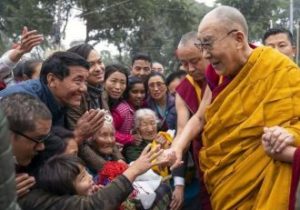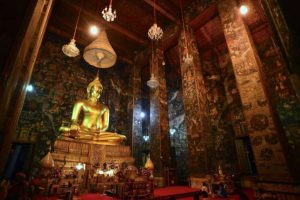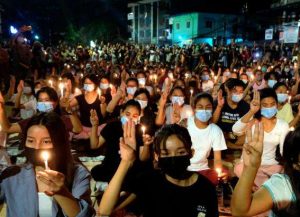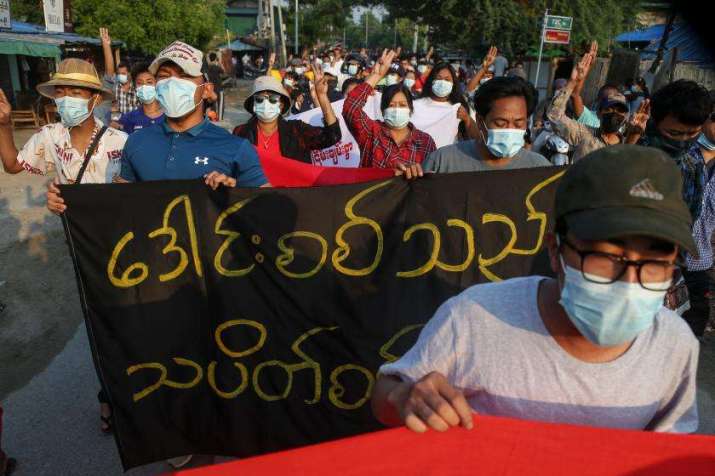
A coalition of Buddhist organizations dedicated to social engagement and humanitarian relief has begun delivering urgently needed medical aid to pro-democracy protestors in Myanmar amid an increasingly violent military crackdown. Civilian demonstrators have been leading an ongoing nationwide civil disobedience movement (CDM) in opposition to the military takeover of the Southeast Asian nation’s elected government that took place in February.
The humanitarian initiative is being led by the International Network of Engaged Buddhists (INEB) with financial support from Good Friends, an international NGO founded by the renowned Korean Buddhist monk and Seon (Zen) master Ven. Pomnyun Sunim and focused on peace, human rights, and refugee relief work. Relief efforts are being coordinated on the ground in Myanmar (formerly Burma) by the Bangkok-based Spirit in Education Movement.
“The situation is getting worse day by day; the death rate and the number of injured people are dramatically increasing every day in almost all townships in Myanmar,” INEB told Buddhistdoor Global. “The military has even shot people who were staying inside their homes. No citizen is secure anywhere and public fear is high as anyone could be killed at any time. The military has even killed children and young people with snipers and machine guns.
“Our overall objective now is to support people’s access to medical services and to provide medical treatment for people injured by the military crackdown in high-risk areas during the CDM movement.”
Medical professionals in Myanmar are
— Naing Sit Thway (@NaingSitThway) May 12, 2021
SHOT,
BEATEN,
ARRESTED for Saving Lives.
We're calling on
ALL MEDICAL PROFESSIONALS AROUND THE WORLD,
to stand in solidarity with us and HELP US #May12Coup #WhiteCoatStrike#WhatsHappeningInMyanmar #HelpUsSaveLives pic.twitter.com/cnVEsg0WjX
The international NGO Good Friends has so far provided US$44,500 in funding for INEB’s medical relief initiative in Myanmar, which is being used to provide medical assistance on the ground to civilians injured by military-led attacks, particularly those in poor and vulnerable communities with no access to medical treatment.
“SEM and our network will provide medical facilities for start-up medic teams, mobile medical doctors, and healthcare workers on the frontlines of the protest. Also, a small amount of donations have been contributed to the family members of those killed by the military,” INEB explained. “We will also provide support to cover the cost of major surgery, treatment for minor injuries, and small cash contributions for the family members of those injured for their food, transportation, and medical expenses.
“Due to the current situation, many of the injured are in hiding as it is not safe visit public or private hospitals, even if they are available. Those in the poorest communities are daily wage workers who are so poor that they could not otherwise afford any kind of medical treatment. As the situation worsens and the number of injured people increases, we are looking for more funds to support on-the-ground medical care.”
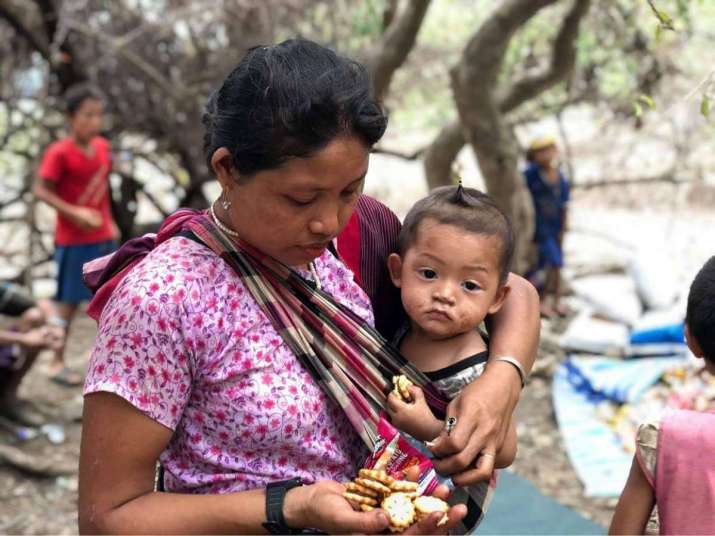
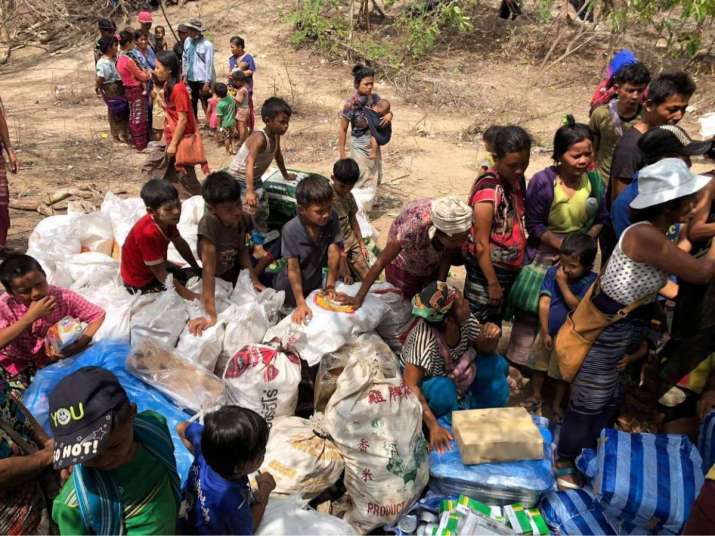
Myanmar’s military declared a year-long state of emergency on 1 February, after detaining President Win Myint, State Counselor Aung San Suu Kyi, and other senior members of the governing National League for Democracy (NLD) party. The coup d’état took place just hours before the country’s new parliament was due to convene following a general election in November last year, during which the NLD made substantial electoral gains.
Suu Kyi, who served the country from 2016–21 following a long struggle for democracy that overturned decades of military rule, remains under house arrest and is facing a growing litany of charges from the coup leaders in an apparent attempt to provide a legal veneer for her detention. Before leading the civilian government, Suu Kyi, now 75, spent almost 15 years under house arrest for her efforts to bring democracy to Myanmar.
The military, which had backed the parliamentary opposition in the national election, has asserted that it staged the coup in response to electoral fraud, however the national election commission has said there is no evidence to support these claims. The NLD won around 80 per cent of the available parliamentary seats in last year’s vote.
‘They were opening fire right in front of me so I had to run for my life,’ a protester who managed to evade arrest said#WhatsHappeninglnMyanmar https://t.co/HQ4a5RZMu3
— Myanmar Now (@Myanmar_Now_Eng) May 12, 2021
Since seizing power, the self-styled State Administration Council (SAC), led by military commander-in-chief General Min Aung Hlaing, has unilaterally amended the country’s treason and sedition legislation in an apparent bid to secure impunity for the coup leaders.
A nationwide civil disobedience movement (CDM) has quickly gathered pace in the wake of the coup, with hundreds of thousands of people protesting in towns and cities across the country, denouncing the military and calling for the release of detained civilian leaders. The CDM movement, which began with medical personnel, has been taken up by teachers, engineers, railway workers, bank staff, and even some members of the police force, who have on some occasions been witnessed switching sides to join the protestors.
As of 11 May, 783 people were confirmed to have been killed by the military junta, the Myanmar- and Thailand-based human rights organization Assistance Association for Political Prisoners (AAPP) reported. The organization added that the figure represented only deaths that the AAPP could verify, and that the actual number of killings was likely much higher. A total of 3,859 people were known to have been taken into detention, with 20 sentenced to death and 14 to three years of hard labour, the AAPP said.
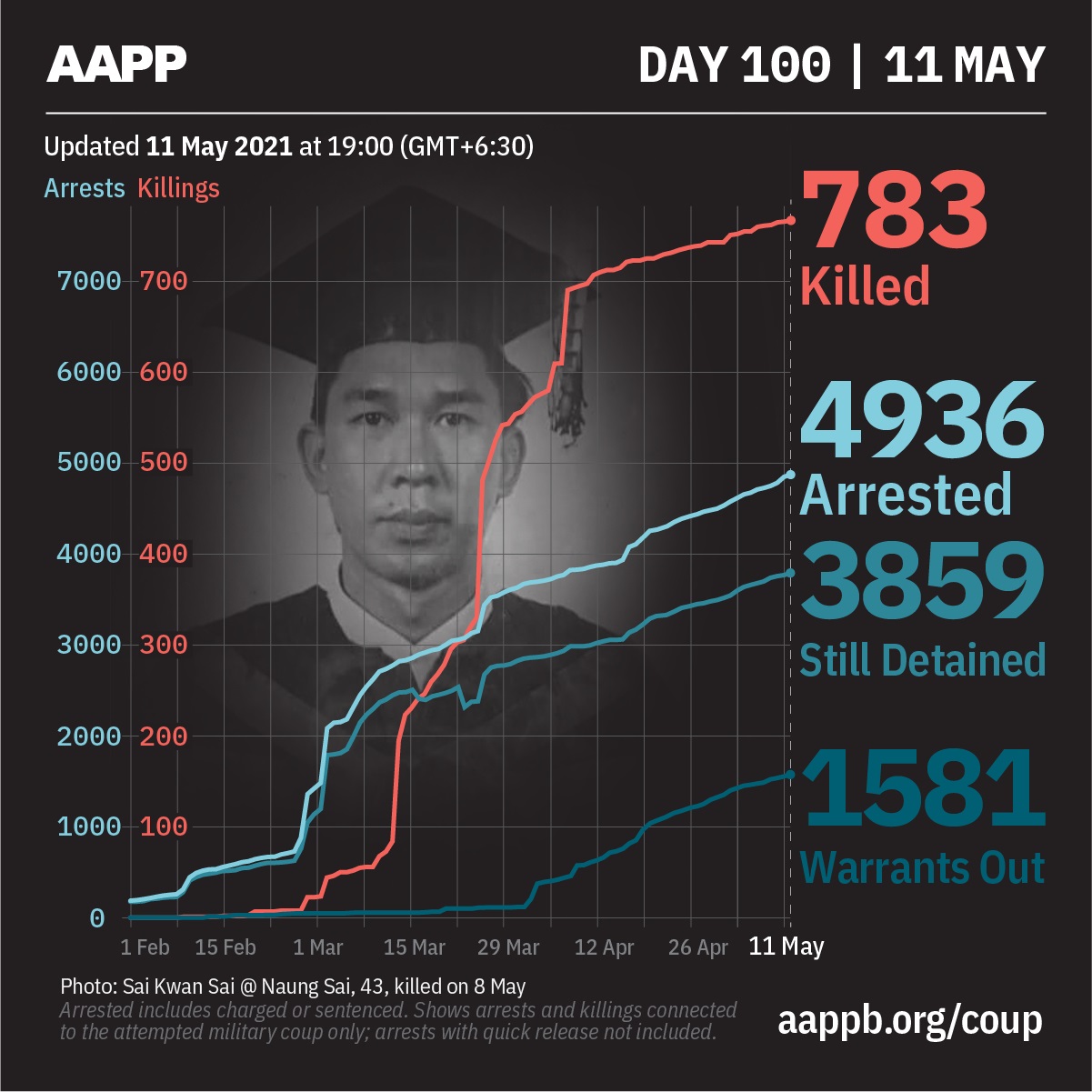
“[11 May] marks the 100th day under military rule. This terrorist group unlawfully seized power and since then has used varied forms of violence and torture upon civilians,” the AAPP stated in its daily update on the coup. “Currently in Burma, political, social, business, and health sectors are all on the verge of collapse. Health services, which were already overburdened due to COVID-19, have been particularly affected. Civilians have been unable to access healthcare and COVID tracing has ceased.” (Assistance Association for Political Prisoners)
INEB was established in Thailand in 1989 by the prominent Thai academic, activist, and social critic Sulak Sivaraksa, with a group of Buddhist and non-Buddhist thinkers and social activists. The organization was formed with the aim of connecting engaged Buddhists around the world to promote understanding, cooperation, and networking among inter-Buddhist and inter-religious groups, and to address global issues such as human rights, conflict resolution, and environmental crises. INEB’s members include monks, nuns, social workers, and academics from more than 25 countries in Asia, Australasia, Europe, and North America, working together under the umbrella of kalyana-mitrata.*
The Spirit in Education Movement (SEM) was founded by Sulak Sivaraksa in 1965 with the objective of offering alternatives to mainstream education rooted in personal and societal transformation. Since 1996, SEM has been committed to empowering grassroots and civil society actors in Myanmar to build a movement of people that empowers local communities to address their own needs in a participatory and sustainable manner.
SEM contact information:
Email: [email protected]
Address: 666 Charoen Nakorn Road, Bang Lamphu, Klong San, Bangkok 10600, Thailand
Bank details for those who wish to support the project:
Bank name: The Siam Commercial Bank
Branch: Charoen Nakhon
Address: 674 Charoen Nakhon Rd, Klong San, Bangkok, Thailand
Account name: Spirit in Education Movement
Account number: 024-2-70156-9 Savings Account
SWIFT code: SICOTHBK
In late April, INEB and the US-based charity Clear View Project launched an international appeal, calling for urgent humanitarian relief for Buddhist monks and nuns living in Myanmar in the shadow of the military junta.**
* Kalyaṇa-mittata (Pali) kalyaṇa-mitrata (Skt.), the Buddhist concept of spiritual friendship.
** INEB, Clear View Project Launch Humanitarian Appeal for Buddhist Monastics in Myanmar (Buddhistdoor Global)
See more
International Network of Engaged Buddhists
Spirit in Education Movement
Good Friends
Pomnyun
URGENT APPEAL for Humanitarian Relief to support Buddhist Monks and Nuns in Myanmar’s Political Movement Against Military Dictatorship (INEB)
INEB – International Network of Engaged Buddhists (Facebook)
Daily Briefing in Relation to the Military Coup (Assistance Association for Political Prisoners)









